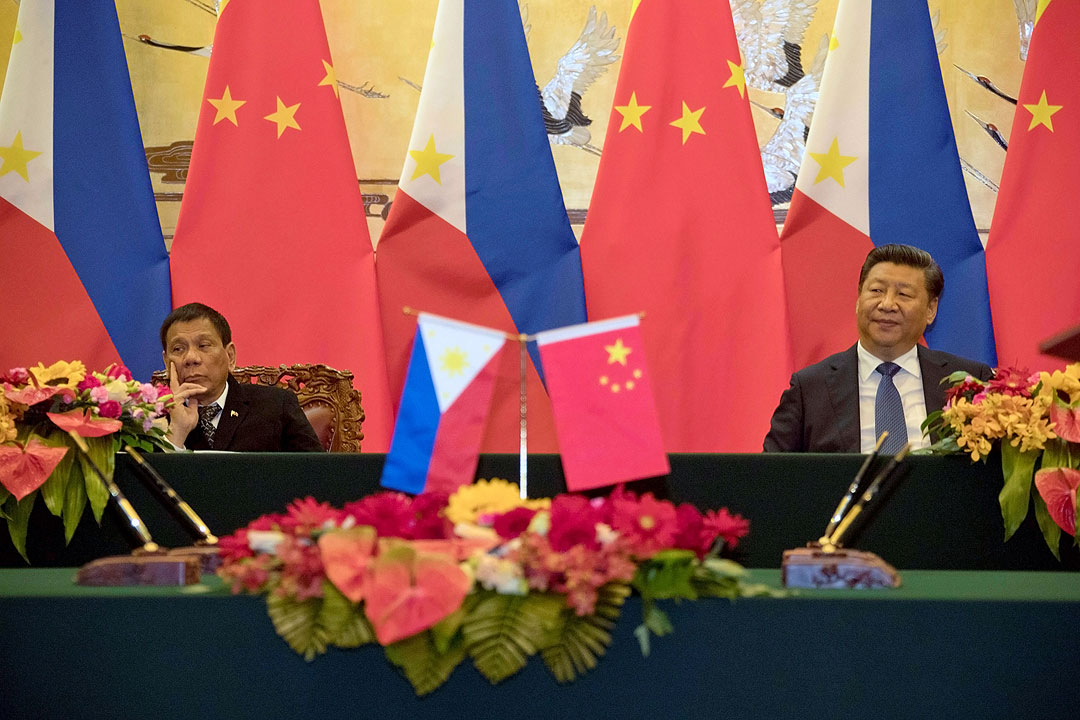China-funded projects may face scrutiny after Duterte leaves


By Kyle Aristophere T. Atienza, Reporter
THE PHILIPPINES under a new government would probably cancel several China-funded projects after several African countries revoked similar contracts with shady state Chinese companies, according to political analysts.
“The same outcome will happen in the Philippines if the next president is not an ally of President Rodrigo R. Duterte,” InfraWatchPH convenor Terry L. Ridon said in a Facebook Messenger chat. Projects with “badges of fraud or corruption” may get suspended, if not canceled.
“Upcoming China-funded projects, on the other hand, may never see the light of day and may be given to other funders with more transparent and competitive proposals,” the former congressman said.
 Several African countries have canceled China-funded projects “on the grounds of being exploitative and unfair,” according to the Free Press Journal.
Several African countries have canceled China-funded projects “on the grounds of being exploitative and unfair,” according to the Free Press Journal.
The Democratic Republic of Congo should renegotiate its $6-billion infrastructure-for-minerals deal with Chinese investors, Reuters reported last week, citing the draft of a report commissioned by a global anti-corruption body of governments, companies and activists.
The deal that was first signed in 2008 was “unconscionable” according to the draft that urged Congo’s government to cancel an amendment signed secretly in 2017 that sped up payments to Chinese mining investors and slowed reimbursements of investment in infrastructure.
The Extractive Industries Transparency Initiative, which tracks revenue flows in the oil and mining sectors and counts more than 50 countries, including Congo, is set to release the final report this month.
There was also a move to cancel Chinese contracts in Kenya after its high court in July last year ordered the cancellation of a $3.2-billion deal with China to build a railway project, according to the Free Press Journal.
The court declared the entire project illegal after it failed to comply with the country’s laws, including procurement policies, it said.
“The recent cancellations of Chinese deals in Africa for inferior quality and noncompliance with regulatory processes should spur Filipinos and any concerned government officials to immediately look deeper into the Duterte administration’s deals with China,” said Sonny A. Africa, executive director at think tank IBON Foundation.
“While these are still very few and far below the grandiose government hype, the veil of opaqueness surrounding them is suspicious and raises alarm bells,” he added.
Mr. Africa said the slow progress of the administration’s infrastructure deals with China would probably trigger a shift in the country’s foreign policy.
“After five long years, the Duterte administration has clinched just five projects worth P48 billion,” he said. “This is just one (project) annually and a tiny sliver of a fraction of the 5,586 projects worth P6.7 trillion under the ‘Build, Build, Build’ infrastructure program.”
He said about four more projects worth P247 billion were still forthcoming. “These should be an additional prompt to a new administration that is hopefully not going to be as obsequious in its relationship with China as the current one.”
Mr. Duterte’s successor would probably review all Chinese investments in the country “because there are perceptions of anomalies and failures to follow basic rules and procedures of public bidding and procurement,” said Victor Andres C. Manhit, president of StratBase ADR Institute for Strategic and International Studies.
“The Filipino people demand transparency and accountability from these Chinese projects,” he said in a Messenger chat.
Mr. Ridon said the Philippines under the next government might follow suit “given the unending controversies involving China’s corporations and nationals.”
He cited the scandal involving the Duterte government and Pharmally Pharmaceutical Corp., whose suppliers are based in China.
The company, which was registered with the Philippine Securities and Exchange of Commission in 2019 with a paid-up capital of P625,000, is a unit of Taiwan-based Pharmally International, whose executives had been implicated in various crimes, according to Senator Ana Theresia “Risa” N. Hontiveros-Baraquel.
Chinese national Michael Yang, a former economic adviser of Mr. Duterte, had acted as a financier and guarantor for Pharmally, according to senators investigating the P8-billion deal.
The Chinese businessman had been implicated in the country’s illegal drug trade and appears to be a “go-to powerbroker in the Philippines for Chinese politicians and businessmen looking for smooth transactions in the country,” Senator Maria Imelda Josefa “Imee” R. Marcos said.
ANTI-BRIBERY
The review and potential probe of deals with China would be unprecedented because the President himself had defended Mr. Yang from attacks, Mr. Ridon said. The businessman has denied any wrongdoing.
“Its impact on future Philippine-China deals will be clearer once the Senate announces its verdict,” said John Paolo R. Rivera, an economist at the Asian Institute of Management.
Krizle Grace Mago, Pharmally’s head for regulatory affairs, told a Senate hearing last month the company had swindled the government by selling face shields that were either damaged or soiled. She later retracted her testimony.
“The Pharmally issue is a reminder of what can happen if the Philippines will not be vigilant,” Mr. Rivera said in a Viber message. “It will serve as a preview of what can happen when transactions and protocols are not aligned with domestic regulations.”
African anti-bribery enforcement involving Chinese companies is virtually nonexistent, Chinwe Esimai, managing director and chief anti-bribery officer at Citigroup, Inc. wrote in the Wharton School’s online business journal in 2019.
“With the Pharmally scandal, the government should not only check for track record and financial capacity, but also whether business activities are prospective platforms for money laundering operations,” Mr. Ridon said.
China was the biggest trade partner of Africa in 2020, with bilateral trade hitting $187 billion, according to a 2021 report on China-Africa Economic and Trade Relationship.
Mr. Duterte has led a foreign policy pivot to China and away from the Philippines’ Western allies.
“Should there be more issues arising from Chinese investments impeding the Philippines’ pandemic response, delays in Chinese-sponsored infrastructure projects may cause authorities and the public to reevaluate the costs and benefits of engagements with Chinese companies,” Mr. Rivera said.
The eco-political ambiance that favors China could change if an opposition candidate wins the presidency, he said. “It’s expected. Preferences will change. Another pivot may happen. Foreign policy may also change that may affect the status quo.”
“A more environment-focused administration may subject Chinese projects to more scrutiny, such as the Kaliwa Dam project,” Mr. Ridon said.
The government seeks to develop the Kaliwa Dam in Quezon and Rizal provinces as an alternative source of water for Metro Manila by 2025. Indigenous, religious and environmental activists have opposed the plan.
Presidential candidates must present a clear plan to reassess Chinese investments in the Philippines, Mr. Manhit said. “Did these projects benefit the Filipino nation and did not violate rules of procurement in our country?”
Mr. Ridon said the South China Sea dispute will remain a foreign policy concern regardless of bilateral relations with China.
“It should have no effect on trade and investments if Beijing is indeed serious in building its relations with Manila,” he said.
“We will have to see how a new president will eventually deal with China,” Mr. Ridon said. The public expects the next administration to assert a 2016 United Nations-backed arbitral ruling that favored the Philippines against China instead of undermining it, he added.








